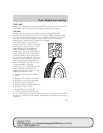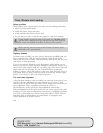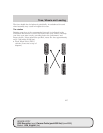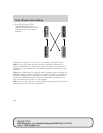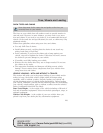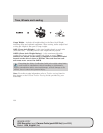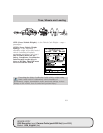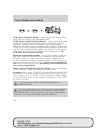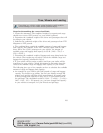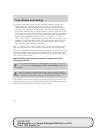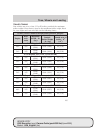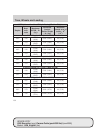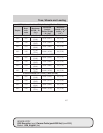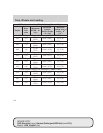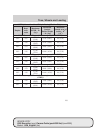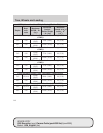
Exceeding any vehicle weight rating limitation could result in
serious damage to the vehicle and/or personal injury.
Steps for determining the correct load limit:
1. Locate the statement “The combined weight of occupants and cargo
should never exceed XXX pounds” on your vehicle’s placard.
2. Determine the combined weight of the driver and passengers that will
be riding in your vehicle.
3. Subtract the combined weight of the driver and passengers from XXX
kilograms or XXX pounds.
4. The resulting figure equals the available amount of cargo and luggage
load capacity. For example, if the “XXX” amount equals 1,400 lb. and
there will be five 150 lb. passengers in your vehicle, the amount of
available cargo and luggage load capacity is 650 lb. (1400 – 750 (5 x
150) = 650 lb.).
5. Determine the combined weight of luggage and cargo being loaded on
the vehicle. That weight may not safely exceed the available cargo and
luggage load capacity calculated in Step 4.
6. If your vehicle will be towing a trailer, load from your trailer will be
transferred to your vehicle. Consult this manual to determine how this
reduces the available cargo and luggage load capacity of your vehicle.
The following gives you a few examples on how to calculate the available
amount of cargo and luggage load capacity:
• An example for your vehicle with 1400 pounds of cargo and luggage
capacity. You decide to go golfing. You and your friends average 220
pounds each and the golf bags weigh approximately 30 pounds each.
Is there enough load capacity to carry you, 4 of your friends and all
the golf bags? The calculation would be: 1400 – (5 x 220) – (5 x 30) =
1400 – 1100 – 150 = 150 pounds; yes, you have enough load capacity
in your vehicle to transport 4 of your friends and golf bags.
REVIEW COPY
2005 Econoline (eco), Owners Guide (post-2002-fmt) (own2002),
Market: USA_English (fus)
Tires, Wheels and Loading
133



